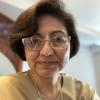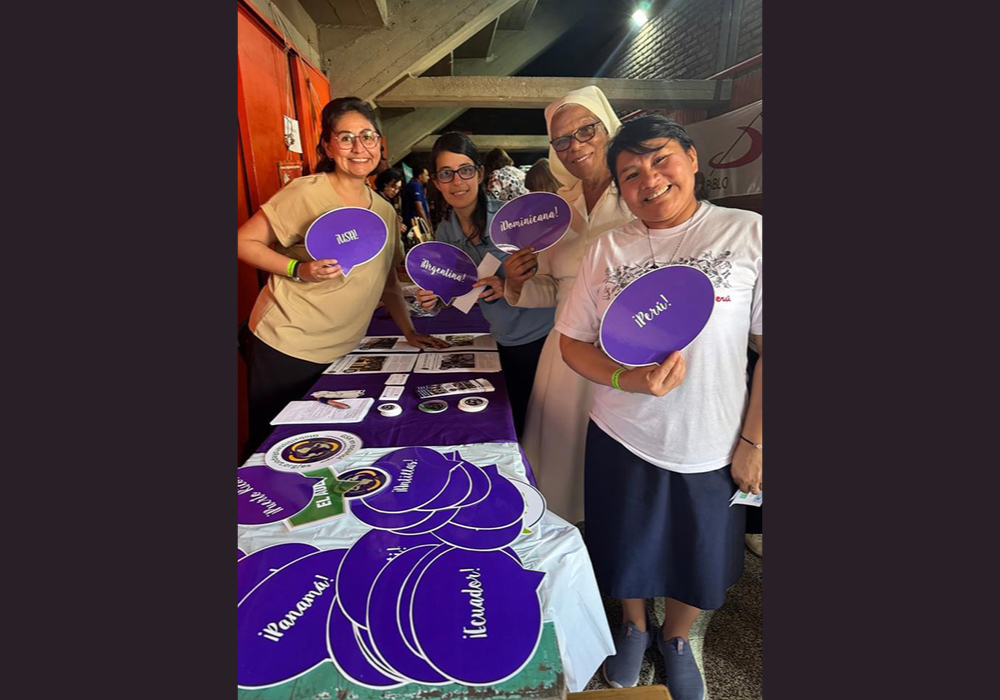
Sr. Helga Leija with sisters from Argentina, Dominican Republic and Peru during the V Latin American and Caribbean Congress of Religious Life, held Nov. 22-24 in Cordoba, Argentina. (GSR photo/Helga Leija)
Long after the conclusion of the V Latin American and Caribbean Congress of Religious Life (or CLAR), held from Nov. 22 to 24 in Córdoba, Argentina, Sr. Liliana Franco's powerful words have stayed with me:
There is a strong call to accept that conflict and tension are part of the journey. Our path is not through smooth, well-worn roads; it is through new ways, exposed to the elements, in the manner of the kingdom, in the manner of the Incarnation. And this means embracing the cross. It means, at times, being splashed by suffering, misunderstanding, and powerlessness. Let us not fear it.
Throughout the conference, I felt the weight of the challenges religious face today, particularly in Latin America. With 400 in-person and 600 online participants from over 20 countries, the CLAR gathering was a collective call to embrace the difficult, often painful paths before us. As religious, our commitment to justice and solidarity will be tested.
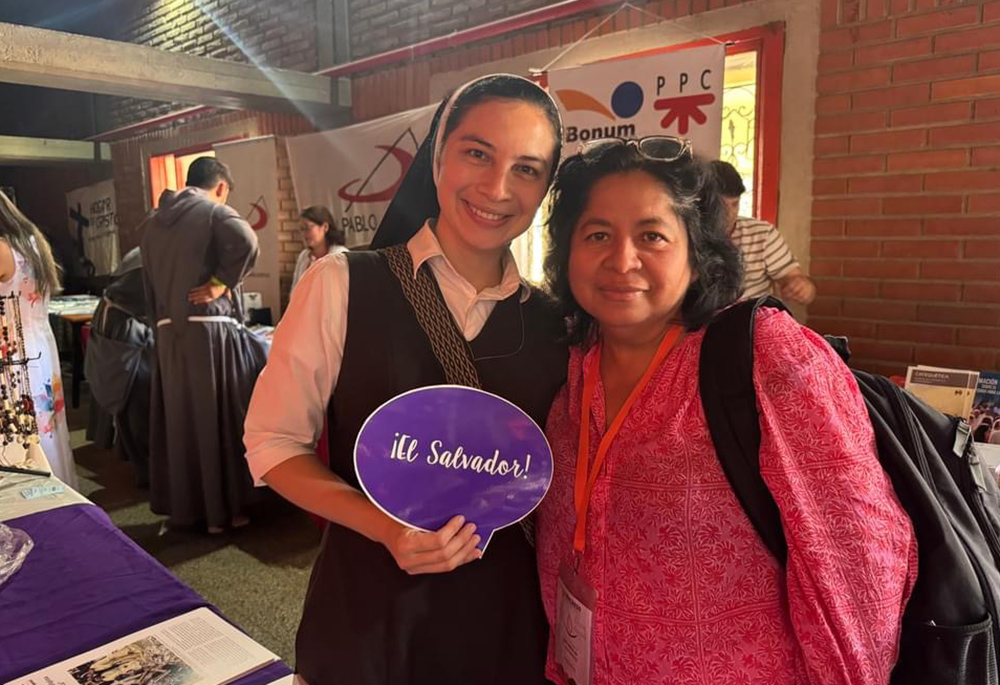
GSR Latin American Correspondent Rhina Guidos with a fellow Salvadoran, Sr. Brenda Chacon, a Franciscan Sister of Mary Immaculate (GSR photo/Helga Leija)
Franco, president of CLAR, in her closing remarks summarized what we discussed throughout our time together: the harsh realities the people we serve must face, and the challenges religious in the region must confront in walking alongside them with faith and hope. Sol Prieto, an Argentine sociologist, highlighted the vast inequalities in Latin America, where the wealthiest 1% control an overwhelming portion of the continent's resources.
This concentration of wealth deepens poverty and perpetuates systems that trap the most vulnerable. Against such injustice, how can we, as religious, offer a hope that challenges these forces of oppression?
Franco, a sister of the Company of Mary, reminded us that we are not called to walk this path alone: her invitation to embrace the cross speaks directly to the heart of our vocation. The work of justice requires us to accept that the path we've chosen is not always the most comfortable. Yet, she urged us to "embrace that tension between death and life, between steps that move us forward and paralysis that keeps us from walking, between intuitions and calls of the Spirit that propel us beyond, and shortsightedness that roots us in the comfort of the familiar."
Fr. Luis Fernando Falcó Pliego, a Missionary of the Holy Spirit from Mexico, highlighted more of the challenges that men and women religious face in Latin America: fewer resources, declining vocations, and aging communities. He encouraged us to view this time not as a crisis, but as an opportunity for hope.
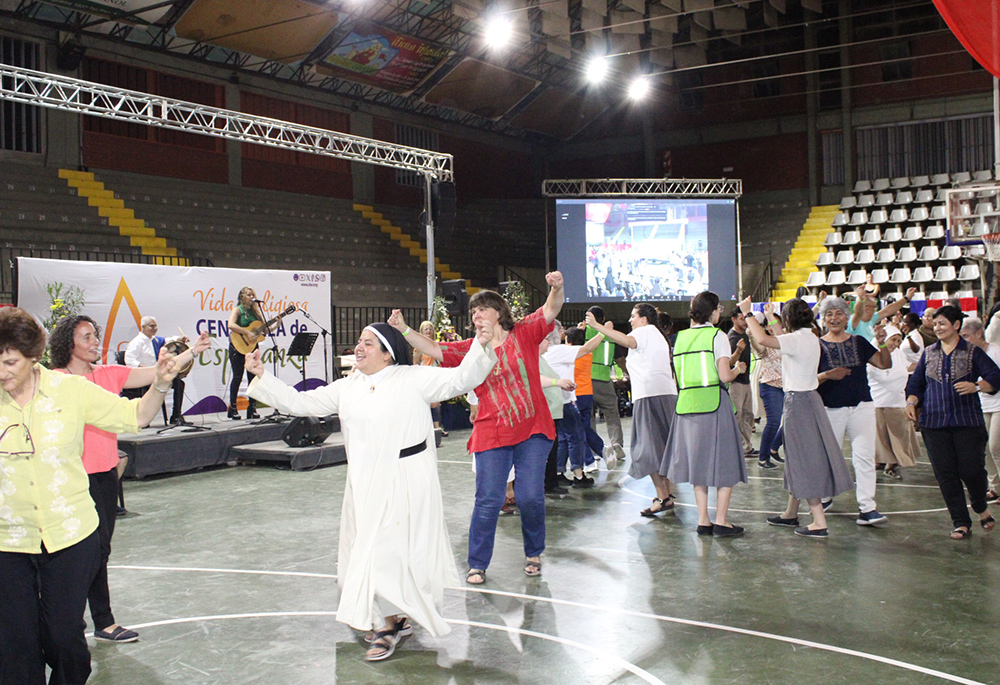
Sisters from Argentina dance Chacarera, a traditional rural Argentine dance performed in pairs, during the folk music celebration of the V Latin American and Caribbean Congress of Religious Life in Cordoba, Argentina. (GSR photo/Helga Leija)
He spoke about the need for strategic downsizing in religious life, urging us to focus on where we can truly make a difference. His words echoed Franco's call to embrace the difficult realities and leave behind paths that no longer serve the greater good.
Throughout the Congress, we heard from a diversity of voices — Afro-descendants, indigenous peoples, and youth — sharing their struggles and hopes for a more inclusive religious life. Fr. Luis Alberto Gonzalo Díez, a Claretian priest, urged us to deepen our understanding of the value of community, where every consecrated person feels truly seen and valued — not because someone gives them a place, but because it is inherently theirs.
It is painful to recognize that, often, in our communities, we invest more time and energy in the people we serve than in our own sisters, all in the name of ministry. Díez reminded us that it's time to "recognize that we have dedicated more energy to saving structures than to the care, recognition, and appreciation of persons."
This truth was difficult to hear but hard to deny. Over the past three years, I've witnessed significant change within congregations and religious life as a whole. As a younger sister, I've had to face a lot of grief from the passing of elders, and though their grief is not less, my own grief is mixed with uncertainty. I've also seen many of my peers leave religious life, which makes Franco's call to "be radically human" even more resonant. She urged us not to betray the hope that people expect to find in us. Yet, at times, it is hard not to feel overwhelmed.
Advertisement
My community, like many others, faces an aging membership, declining vocations, and buildings too large for us. We are tasked with reimagining more creative spaces for ministry and living together as monastics. It's not easy, and the road ahead seems long. But Franco's message challenged me to think about how I can embrace this discomfort and continue to be a sentinel of hope. Not a naive hope, but one rooted in the promise of God's presence among us.
What I take home from this Congress is the invitation to "be radically human." This call challenges me to acknowledge my own grief and struggles while remaining faithful to the hope others expect to find in me. To be radically human is to be vulnerable. I'm not an extraordinary human being, so, what might this mean in my daily life? In my monastic community, I feel called to bring hope through simple, everyday actions.
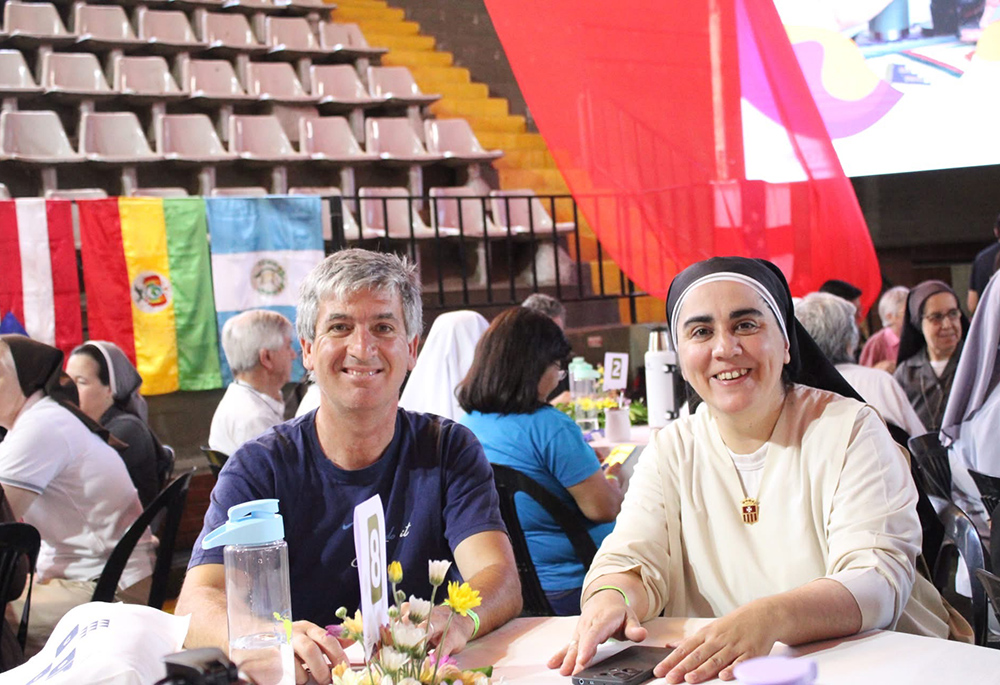
Sr. Adriana Perez, Mercedarian Sister of the Child Jesus, and Fr. Walter Gomez of the Marian Fraternity (GSR photo/Helga Leija)
It might mean being fully present to a sister struggling with the challenges of aging and taking the time to listen without rushing to fix things. It's about noticing the small signs of life around us — the shared laughter at a meal, the joy of prayer together, the beauty of God's creation on our grounds — and helping others see them, too.
Being a sentinel of hope isn't easy, and it doesn't mean ignoring the difficulties we face. But it does mean trusting that God is with us in the tension: in the steps forward and in the moments when we feel stuck. It's about choosing to believe that if we unlock our charisms and give them the room to grow, they will continue to flourish, even without us.
In these times of diminishment, we cannot lose sight of who we are. Our vocation is not about numbers or buildings or structures; it's about people. It's about showing up, staying present, and trusting that together, we can find the way forward. This is the future of religious life: not perfect, not easy, but lived with faithfulness to the God who walks with us through it all.
